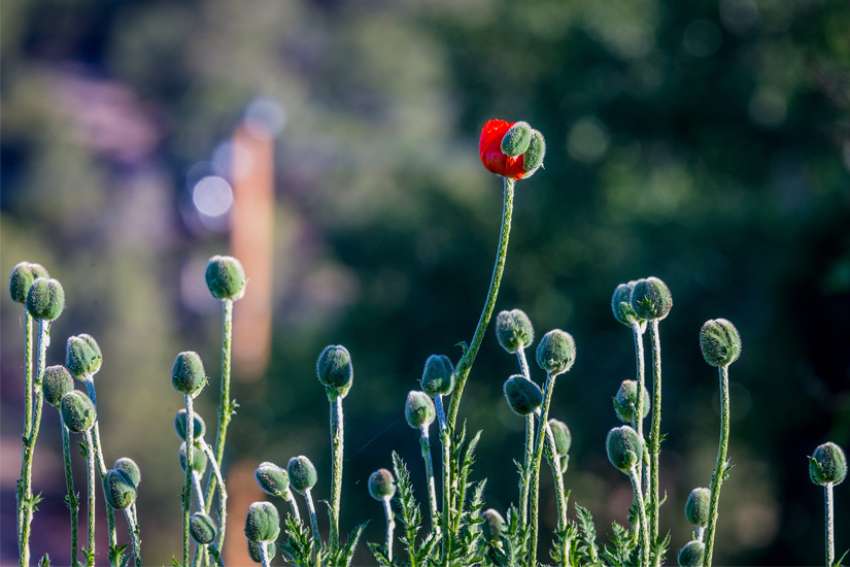This view — common, though not often expressed so clearly — is too shallow to grapple with the real questions of religion today. Rather than dismiss religion as a harmless, ineffectual wave that comes and goes, every member of society is challenged to face the deeper questions raised by the existence of religion, even though we (religious and non-religious alike) prefer to ignore them.
Christianity, if it is a religion, must face such questions. Are our religious institutions set up to control people or to free them? Do we promote violence (in any of its myriad forms) or face and receive it without giving it back? Do we bring people together or drive them apart?
We need not fear such questions. They are not new in the long, variegated history of Christianity. If it is worth our while at all, it is more than big enough to meet them.
Recently a young woman, not yet graduated from university, was telling me how she came to volunteer for a church program that serves disadvantaged children. Her family and social background, Katie told me, are secular, not particularly anti-religious but uninterested in faith.
As an adolescent, eager to learn, she did her own avid reading of philosophers and other thinkers. She said the name “Jesus” kept coming up over and over, and she wanted to find out more about Him. So she explored, and her own questing spirit led her to places where Christians are working and praying together in service of the marginalized. Here she was learning the meaning of the name Jesus.
“The joys and the hopes, the griefs and the anxieties of the (people) of this age, especially those who are poor or in any way afflicted, these are the joys and hopes, the griefs and anxieties of the followers of Christ.” This is the dare offered by Gaudium et Spes, the great Church document published in 1965.
How do we meet people? How do we meet their joys and troubles? Not by keeping Christianity in a small, air-tight container marked “harmless, shallow and ineffectual.” At least, let’s take our “religion” out of the container and find out what it’s for.
“Why stay we on Earth except to grow?” asked the poet Robert Browning. This question is as relevant to faith as to individuals. We can’t expect our faith to respond to society’s critiques, or life’s joys and troubles, if we keep it in a container that has no room for growth, like a pot-bound plant that will eventually give up and wither away.
If Katie, with no guidance at all, could explore faith with her life, why can’t we? God is “slow to chide and swift to bless,” the old hymn says, not so much waiting like a nasty teacher to punish us for our failings when we venture out, but blessing us to walk forth in the world and test our faith by using it.
Driving in rural Britain, a friend and I enjoyed the signs that regularly appeared just before the crest of extremely steep hills: “Test brakes now!” Don’t wait until you’re on the down slope and it’s too late. When I step on my brakes, I know they are there and working. Why not test our faith, walk on it and in it, and find out what it can do?
Especially today, as our society puts great pressure on religion — the kind of pressure that makes coal into diamonds.
Christianity is not a religion, of course. It’s someone. It’s not a set of beliefs, but faith, which means a relationship between us in our smallness and sorrow, and God in His infinity and ecstasy.
“Ecstasy” does not mean the drug that induces a temporary euphoria, mimicking and mocking the divine, but the exuberant, just-because dance of life. Watch any created thing, from the firefly to the trailing vine to the silver disc of Jupiter in the evening sky, and you will be present to ecstasy. We could lose our ecstasy, or pack it up and hide it away because the world is serious and gloomy, but why would we?
Katie, telling me her story of coming to faith and living it with others, flashed one of the most brilliant smiles I’ve ever seen. It was not psychological need-fulfillment she found there, nor control and aggression. It was something dazzling.
What if it’s ecstasy that’s at the heart of all things after all — the dancing electron, the pageantry of the galaxies, the uncontainable joy that keeps the universe expanding and you and me growing? Why stay we in this faith except to grow?
(Marrocco can be reached at marrocco7@sympatico.ca)


